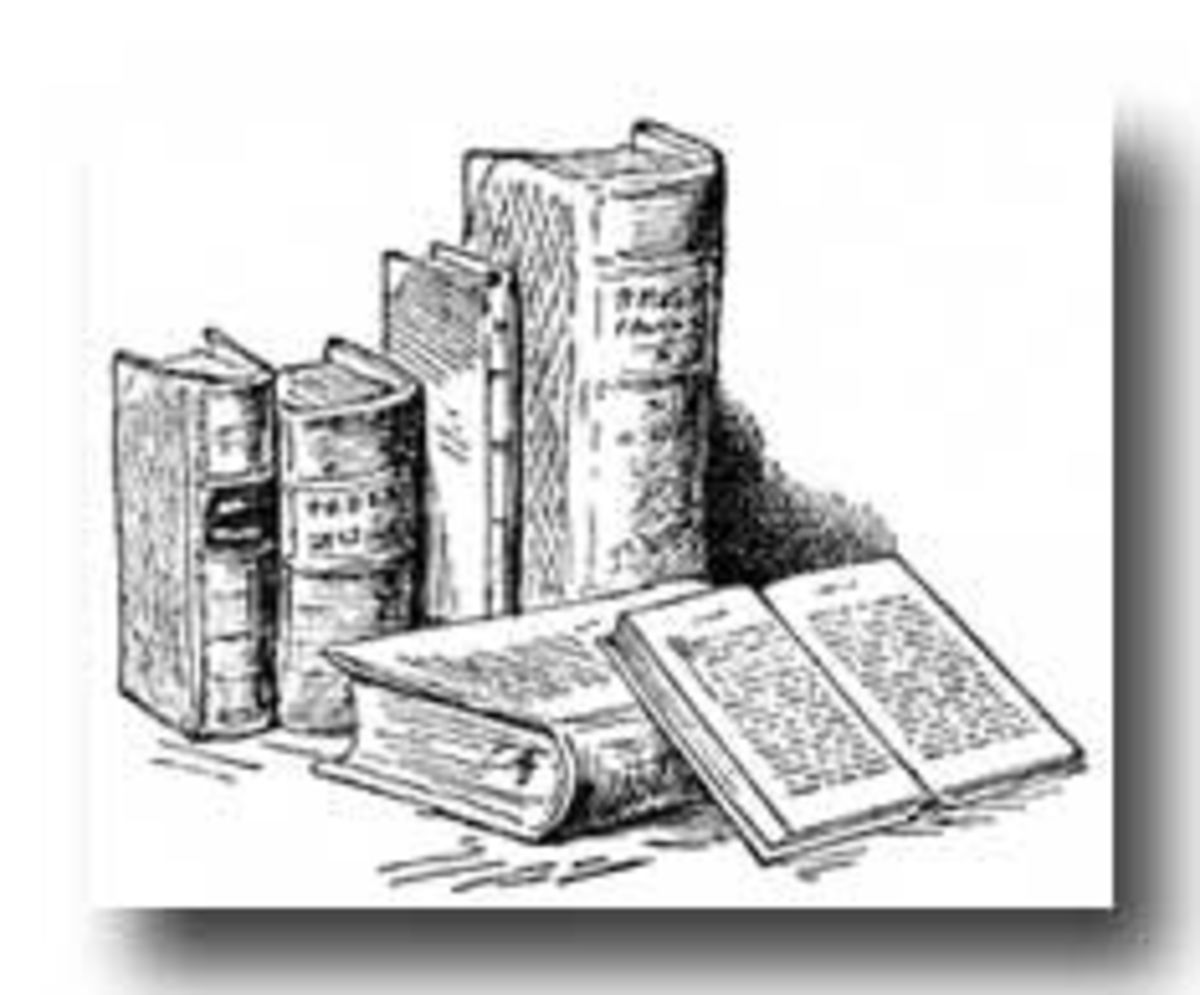Sentence Sermons (Christian Inspiration) #28 --- Adversity
Quotations on Adversity
He who has not felt the weight of adversity knows not how to cherish prosperity.
—Emmet Rodwell Calhoun, Louisville Times, Louisville, Ky., Jan. 14, 1905.
Adversities contribute to our well-being in at least four ways. First, these adversities help to prepare us for responsibility. No man is really ready for responsibility until he has been through the fires of adversity. Many who have grown up in our affluent society are ill-equipped for the solemn responsibilities which face us in our churches, community and nation. Second, these help to keep us humble. Perhaps there are a few men who are able to maintain an humble spirit even without much adversity, but most of us need the discipline of adversity to keep us humble and dependent upon God. ... Third, these help to produce sympathy in us for others. The leader who comes up through paths of serious adversity is bound to have more empathy for his people than the one who grows up without it. Fourth, these enhance the glory of the cross. If one has never suffered adversity and trial, it will be difficult for him to appreciate the glory of the crown of success which he has won.
—C.E. Colton, Baptist Standard, Dallas, Texas, Oct. 19, 1983.
There are countless ways open to all of us to turn liabilities into assets if we put to work just half of the imagination entrusted to us by God. Christ expects His followers to show originality in coming to grips with the problems of life. Far from running away from difficulties, He wishes us to be daring in applying His divine truth to the most difficult situations.
—James G. Keller, Houston Post, Houston, Texas, Feb. 8, 1958.
Those who seek to avoid difficulties seldom get the revelation of God's faithfulness. They attempt to use faith to exempt themselves from crises, not realizing they are robbing themselves of the greatest opportunity to find out what is really inside them. Then one day trouble comes that can't be avoided and they cave in, having no inner strength.
—Robert Hearne, Alexandria Daily Town Talk, Alexandria, La., Aug. 24, 1996.
In the crises of life, our words show where our souls have been feeding.
—Harry Emerson Fosdick, quoted in Sarasota Journal, Sarasota, Fla., Jan. 8, 1965.
Adversity is but the night God has given to let the star of hope and courage shine more brightly.
—W.A. MacKenzie, Florida Times-Union, Jacksonville, Fla., June 23, 1923.
Adversity demands a diversity of prayer.
—Ernest C. Wareing, Western Christian Advocate, Cincinnati, Ohio, March 26, 1925.
Adversity is the acid test of faith.
—Ernest C. Wareing, Western Christian Advocate, Cincinnati, Ohio, Sept. 12, 1929.
God does not promise a calm flight but a safe landing.
—Oliver G. Wilson, The Wesleyan Methodist, Syracuse, N.Y., Sept. 26, 1951.
The way to meet any problem is face to face. It will never be solved by attempting to evade it or minimize its importance. Most difficulties that cross our paths are easy to work out if we take hold of them with determination and use our best efforts to settle them.
—Phil Conley, The Clarion-Ledger, Jackson, Miss., April 28, 1950.
You’ve seen folks who could move right on in the face of adversity, while others simply crumbled.
—Bill Copeland, Sarasota Journal, Sarasota, Fla., May 2, 1980.
Adversity tries the spirit, but hope, encouraged by determined resolution, will enable one to scale the ramparts of fate in the great battle of life, and bring success to crown the victor with the laurels of prosperity.
—George W. Crocheron, Improvement Era, Salt Lake City, Utah, February 1903.
In trying times, too many people stop trying.
—Tom Ethridge, The Clarion-Ledger, Jackson, Miss., Dec. 8, 1972.
“Casting all your care upon Him; for He careth for you.” (1 Peter 5:7.) It would be foolish to say that the Christian’s life is free from cares and burdens. If the Lord had not expected us to have our troubles, He would not have told us what to do with them. But the fatal mistake which we sometimes make is that we imaging we must bear our burdens alone. Again and again we must be reminded of the blessed command and promise, “Cast all your care upon Him; for He careth for you.” In every problem or perplexity we are to feel the loving presence of our Savior. When the cross seems heaviest, we are to feel His shoulder next to ours helping us bear the burden. When the weight seems too much for us to carry, we are to relax in the full assurance that His shoulder is still there and in that shoulder there is omnipotence and love and mercy. We can rest our crosses on His mighty arm through constant, daily prayer. Let us, then, gather all our cares and crosses and take them to Him who loves us. In His mercy He will either lighten the burden to match our strength, or He will increase our strength to math our burden. The burden will then be His and ours! And He has promised that He will help us bear it.
—R.J. Lillie, Milwaukee Sentinel, Milwaukee, Wis., Jan. 30, 1952.
“The wind shall carry them all away; vanity shall take them: but he that putteth his trust in me shall possess the land, and shall inherit my holy mountain.” (Isaiah 57:13.) “Wind-drift” is said to be a common term to airplane pilots. If a plane were traveling from east to west, a strong direct north wind would have a tendency to carry the plane off course. Therefore, a skilled flight navigator makes allowance on his compass for curve; otherwise a plan would end up far south of its intended destination. The true Christian attempts to make allowance for all of the untoward circumstances of life so that the wind of bitter experience shall never “carry them away” from God’s love and care. The Christian may use the Bible as his tool in navigating the storms of life. The words of Jesus, which he finds there, may become a power greater than the power of adverse circumstances.
—John Whitney MacNeil, Sarasota Herald-Tribune, Sarasota, Fla., April 1, 1962.
In the vicissitudes of our common life we must experience pain and sorrow, as well as health and joy. They are incident to our human nature. Physical suffering we must endure, but in no sense moral contamination. This is the result of our own misconduct. If we fail it is the result of our own apostasy. But we cannot go through life along the pathway of roses. We must take the thorns with the flowers--these will often pierce and sting, but the fragrance of the rose will compensate in great measure the painful sting of the thorn. It is the contrasts that make us estimate at their true value, the beautiful and the good, which make us gratefully appreciate life's blessings and prevent our repining at grievances which are common to our earthly existence. It is the conflict of our being--the needful discipline of it--that makes us rise to the purpose of fighting manfully against our foes, that infuses hope into our drooping hearts and inspires the soul with an energy almost divine as it reaches out beyond its present afflictions and beholds the joy in store for faithfulness and love.
—Tullius C. Tupper, The Atlanta Constitution, Atlanta, Ga., June 18, 1900.
Adversity is not a sign of God's anger. He does not pay His spiritual debts in physical coin. His "sun shines on both the evil and the good"--and sorrow comes to both. Adversity is a manifestation of God's love. It is easy to see God's love in gold, and light, and flowers, but storm, disaster, and pain come out of the same source. "By their fruits ye shall know them." Sorrow causes the fruit and flowers of virtue to grow on the soil of soul. ... Pain is a sentiment to warn us back to duty--a sign board to tell us of danger. "Necessity is the mother of invention." We move forward under its pain. Difficulties overcome are but steps to a throne of power. Sorrow is God's "Move-on ordinance." God does not want men to stand around the corners and loaf. ... Sympathy is meek sorrow's patient child. Crushed flowers give us perfume and crushed hearts give us sympathy. But sympathy does not spend itself alone in sweetness for it is the greatest altruistic power in our world. All of the humanitarian and eleemosynary institutions of men are founded by it. ... Sorrow is God's ally in His fight against the kingdoms of this world. Sorrow reveals sin and leads to righteousness. Sorrow shuts out the light of this world and causes man too turn his eyes upon himself. This self-examination results in self-revelation and may issue in self-condemnation and penitence, which is the first step toward God and right. The suffering of others may break down the barriers of selfishness and Christ may enter into the heart in the form of a ragged, suffering child. Many have been led by sorrow to God. Sorrow perfects character. As "truth grows more bright neath the beaks and claws of harpies blind that fain would soil it," so character is brightened by affliction's hand. Christ was made "perfect through suffering." Take away those qualities that are visible only against the background of pain and you have "taken away my Lord." His love for His enemies, His forgiving spirit, His meekness and sacrifice–take these away and you emasculate the character of God.
—H.W. Knickerbocker, Houston Post-Dispatch, Houston, Texas, May 9, 1927.
Life to none of us is one long sweet dream. It has its worries and its cares. Misfortunes of all kinds come to all. It is then our faith is tested and our burdens or crosses are to be carried. Any load we are unwilling to carry is a burden to him who enjoys his work. So this whole matter of carrying our crosses is relative. Our burdens will always be heavy if we are unwilling to carry them and all labor is easy for him who loves his work. So that is why in different cases mentioned the cross is sometimes called heavy and in others it is called light. Many hearts are often bowed down with trouble and misfortunes and some give up in despair under the load; but if they knew that a firm faith would lighten the load or strengthen them to carry it, they might seek their faith which overcomes the world. However, many of them do not. Now even in the matter of faith many will subscribe to the faith but are unwilling to take up the cross. These ask how heavy is the cross? And if they find the task arduous, they are willing to forsake the only means possible by which their loads can be lightened. That is where we are so blind. "Follow me." These are the words of Jesus, the greatest moral and spiritual leader this world has ever known. It is not easy to follow Him if you have never learned to love and admire His character. He calls on all of us to be honest with ourselves, and nature's laws teach honesty and it has been proven over and over again that honesty is the best paymaster. He also taught that truthfulness is the only course to follow and experience has often proved that deceit and lies cannot succeed. But even if both such courses should be followed, charity must not be left out, for that concerns our fellow men. If we do not love each other and are not willing to help those less fortunate than we are, we still have missed the great point in following Him. Our failure to follow Him in these great principles of life are the chief reason our crosses are so heavy upon our hearts and shoulders. There is no other way to succeed in life and get those blessings which are ours without asking, yet many make this course the last they will try for worldly success.
—J.H. Funderburg, Lake Charles American Press, Lake Charles, La., Jan. 27, 1940.
Affliction and adversity temper the mettle in character by burning away the packing material, removing the forms, the scaffolding, the supportive braces, and blowing away the trifles. It draws strength from an untapped reservoir that nourishes a desire to resume, to continue with little steps in a new direction. Because of the restrictions, the faculties become more sensitive, the efforts more meaningful, the accomplishments more durable. Affliction fulfills a need. If it is avoided for too long one may grow complacent to its teachings or indifferent to the lessons learned from the struggle to prevail. “We know that all things work together for good to them that love God.” (Romans 8:28.)
—Ted L. Hanks, Spanish Fork Press, Spanish Fork, Utah, Aug. 7, 1980.
There is often a difference between what is pleasant and what is good. A thing may be pleasant and not be good or it may be good and not be pleasant. In other words, what feels good and what is good are two different things. This is applicable to the ministry of affliction. Here the author of Hebrews says, "Now no chastening for the present seemeth to be joyous, but grievous; nevertheless afterward it yieldeth the peaceable fruit of righteousness unto them which are exercised thereby." (Hebrews 12:11.) In other words, he says, "Chastening doesn't feel good, but the effect is good." ... In God's plan for us, "Sweet are the uses of adversity" and affliction. This is the purpose of God in it. The husbandman doesn't prune the tree to make it suffer, although it may bleed under the pruning, but to make it fruitful. So the master husbandman prunes our lives, not to make us suffer, but to bear fruit for him. By his use of the word "chastening" here in combination with the word "fruit," would seem to indicate that the pruning of the life is what he is referring to. "Now no pruning for the present seemeth to be joyous," etc. God's purpose is addition by subtraction. Affliction causes us to depend upon God. It thereby gives God a chance to work, for "Man's extremity is God's opportunity," and when we get to the end of our row, we are at the beginning of God's. A rescuer can't save a drowning person until that person is ready to give up and depend upon him. Neither can God step in and do His work for us until we are ready to turn it over to Him. Affliction has a ministry in ripening our lives. There are some fruits that do not ripen and are not sweet to the taste, until frost falls on them. The frosts of God mellow and ripen us spiritually and cause our lives to send forth a rare fragrance like crushed violets. Affliction develops character. Violin makers often take the wood for the instruments from the north side of the trees, because it has been made tougher by the cold north winds. So trials discipline our spirits and strengthen the spiritual fibre of character. The ministry of affliction is helpful in making us willing to go to school to God and learn the lessons He has for us and how much we learn in the school of sorrow that we need to know and that we do not learn any other time.
—Arthur T. Allen, Christian Index, Atlanta, Ga., March 25, 1937.
For some men whose world was falling apart Jesus used a withered fig tree as a sign post to security. The disciples were facing experiences that would try their souls. They were facing experiences that would try their souls. They were to be denied the things they wanted. One they loved was to be taken from them in death. Their future would for a long time seem to offer nothing but desolation. Everything they had hoped for and worked for appeared to be lost. Everyone shares this experience at one time of another. It can be helpful to remember at such times the things Jesus told His disciples. First He said, "Have faith in God." (Mark 11:22.) He pointed to the fig trees as an example of how all things are subject to the power of God. It had been withered by a word. He said that with faith a mountain could be moved. He said that if we come praying, believing that we will receive, the answer to our prayers is sure. There is mystery here but it is a fact of experience that faith grows stronger when one's world is falling apart. People who are in the midst of misfortune understand what it means to have faith in God better than those who are free of serious trouble. Even as they lose that which seems necessary there comes a confidence that they are in God's hands and that God will work for good the misfortune that has come. To keep strong hold on your faith in God will not answer all your questions and will not banish your sorrow. It will, however, answer your deeper need for security and for hope and for confidence. As time goes on you will join those who witness to the fact that mountains have been moved. The second thing that Jesus said to these scared disciples was, "When you stand praying, forgive if ye have ought against any man, that your Father which is in heaven may forgive you." (Mark 11:25.) This points the only way we can keep the channel open by which God's help comes to us. We can expect God to answer our prayers only as our sins are forgiven by Him. He can receive us as forgiven sinners only as we forgive any who have injured us. There is no way to escape this condition. If you have not forgiven any person any injury that person has done you, the way to God and from God is blocked. So Jesus gives a prescription for stability and security in the face of life's storms. First, hold fast to your faith in God and second, hold nothing unforgiven against any man. There is nothing easy about this advice of Jesus but if your world is falling apart you will find that it will remove mountains. You will discover that your loss is surrounded by God's presence and that along your difficult way is the assurance of His never failing love.
—Vernon S. Broyles, The Atlanta Constitution, Atlanta, Ga., Sept. 3, 1962.
Storms go by and so do our troubles, if we are patient. Some people practically train themselves to anticipate only the gloomy things. They should readjust their mental apparatus and begin to look forward to the joyous time of spring. “But what are you going to do,” says a reader, “when your mind insists on having gloom?” The trouble with a mind of that kind is that it has not been properly disciplined. If you allow moody thoughts today and you grow pessimistic, then you have accepted into your mind shadows which may fall again across your pathway, to annoy and distress. Better cultivate the bright side of things, and when tempted to become depressed, sing, laugh and make merry, even though the effort be wholly forced and artificial. Thoughts are impressions made on the brain cells. They become living things. Be careful what you store in that mind of yours. If you are religiously inclined, cultivate the wonderful faith and optimism of those who believe. It will save you from the chill of the world, when thoughts come trouping back. If you have no creed, then get a philosophy of some kind which will preach faith and hope, and bathe your soul in sunshine. But don’t expect the world to be all sunshine. When storms come, meet them with all the courage of one who is brave. If you are sorely afflicted, practice fortitude. Accept your burden, carry your load and do not complain. Above all things, do not pity yourself.
—Frank Francis, Ogden Standard-Examiner, Ogden, Utah, April 26, 1926.
Struggle is a clever device through which nature compels humanity to develop, expand and progress. Struggle is either an ordeal or a magnificent experience, depending on the attitude with which one approaches it. Success is impossible without it. Life, from birth to death, is literally an unbroken record of ever-increasing, unavoidable struggle. Even education calls for eternal struggle and every day is "commencement day" because education is cumulative--we get it a little at a time from every experience we encounter. "Do the thing," said Emerson, "and you shall have the power." "Meet struggle and master it," says nature, "and you shall have strength and wisdom sufficient for all your needs." The strongest trees of the forests aren't those most protected but those that must struggle against the elements--and surmount them--for survival. My grandfather was a wagonmaker. In clearing his land for crops, he always left a few oaks standing in the open fields where they were exposed to the full heat of the burning sun and the blasts of the wind. As a result, these trees were far tougher than average. It was the timber from them that he used for wagon wheels, bending them into arc-shaped segments without fear they would break. Struggle similarly toughens the human spirit for the buffeting of life. Most people go through life following the line of least resistance wherever a choice lies open to them. They fail to recognize that following the line of least resistance is what makes rivers crooked--and sometimes does the same for men. Once we understand the broad purpose of life we become reconciled to the circumstances which force us to struggle. As a result, we accept struggle for what it is--opportunity. The necessity for struggle forces us to move when we would otherwise stand still. And it leads us eventually to the full realization that success comes only through struggle. ... By running to meet struggle, rather than trying to avoid it, you can use it to help you learn, grow--and succeed.
—Napoleon Hill, Houston Post, Houston, Texas, Aug. 7, 1956.
The object of life is to teach the meaning of the law. Trials, misfortune, hard times makes men. Man in his weakness relies upon God and becomes strong. When man is puffed up in his own conceit he becomes weak. If we would be strong we must face adversity and pass through experiences.
—Nephi L. Morris, Ogden Standard-Examiner, Ogden, Utah, May 22, 1933.
The tears of adversity are rain which prepare the heart for the seeds of human understanding.
—W.A. MacKenzie, Florida Times-Union, Jacksonville, Fla., Jan. 31, 1925.








